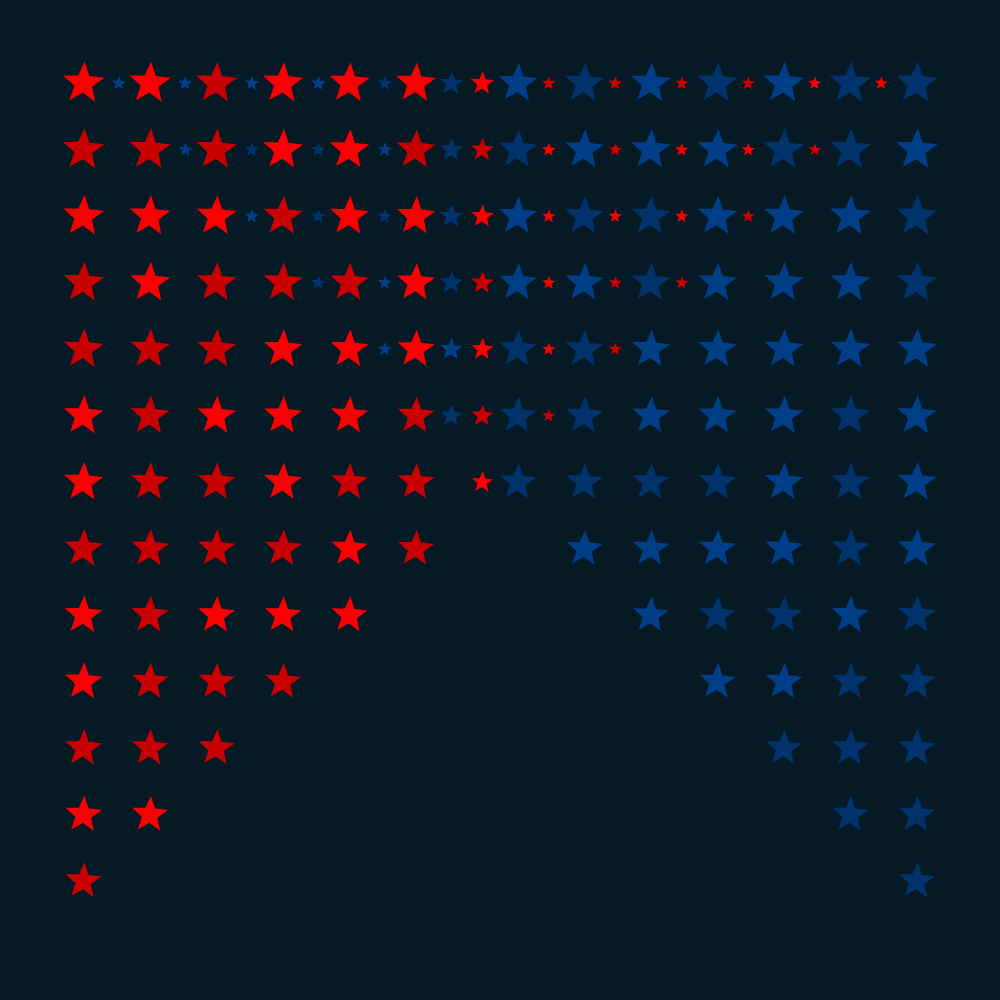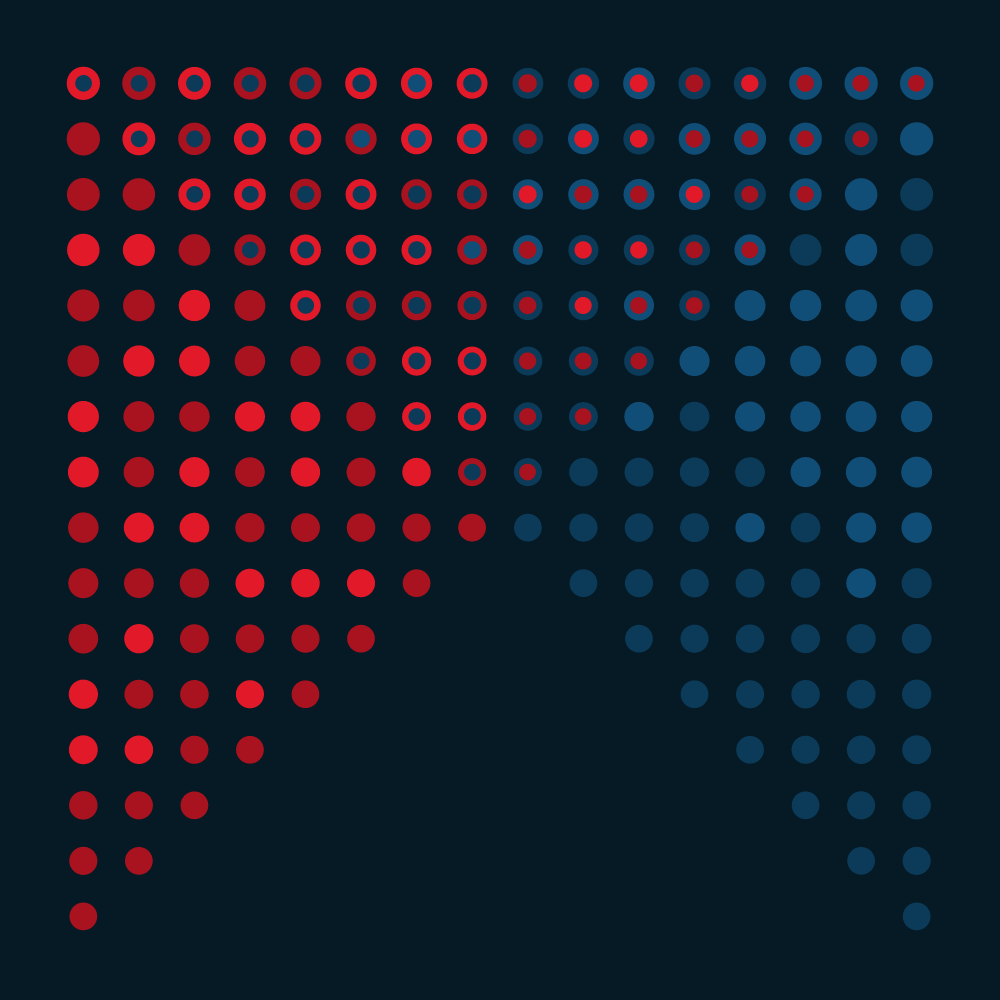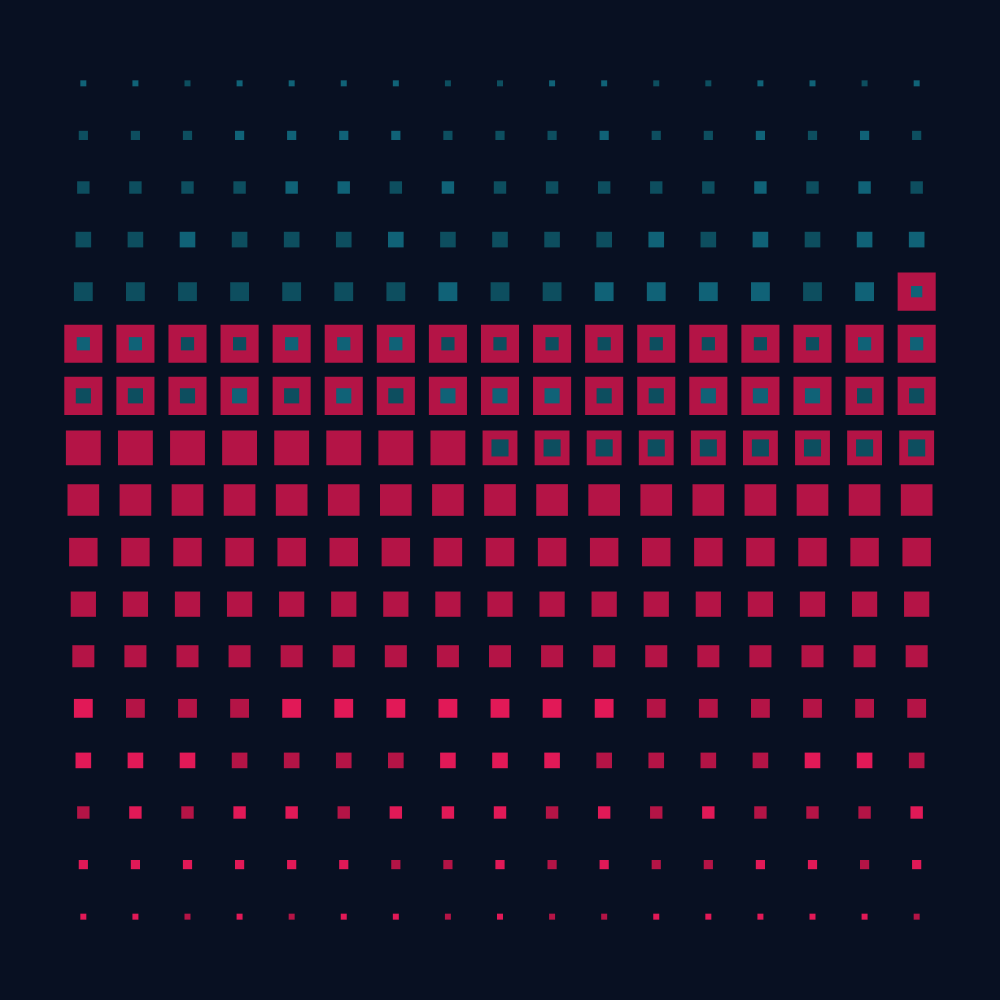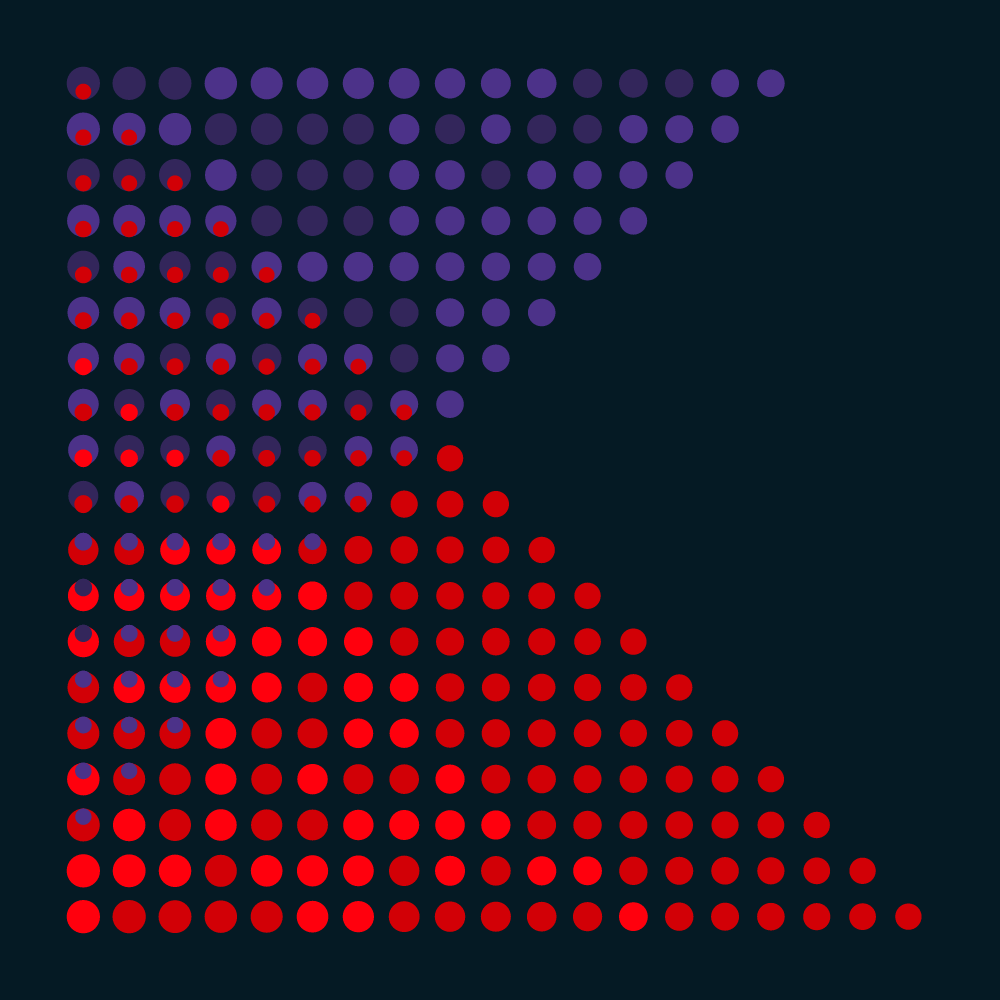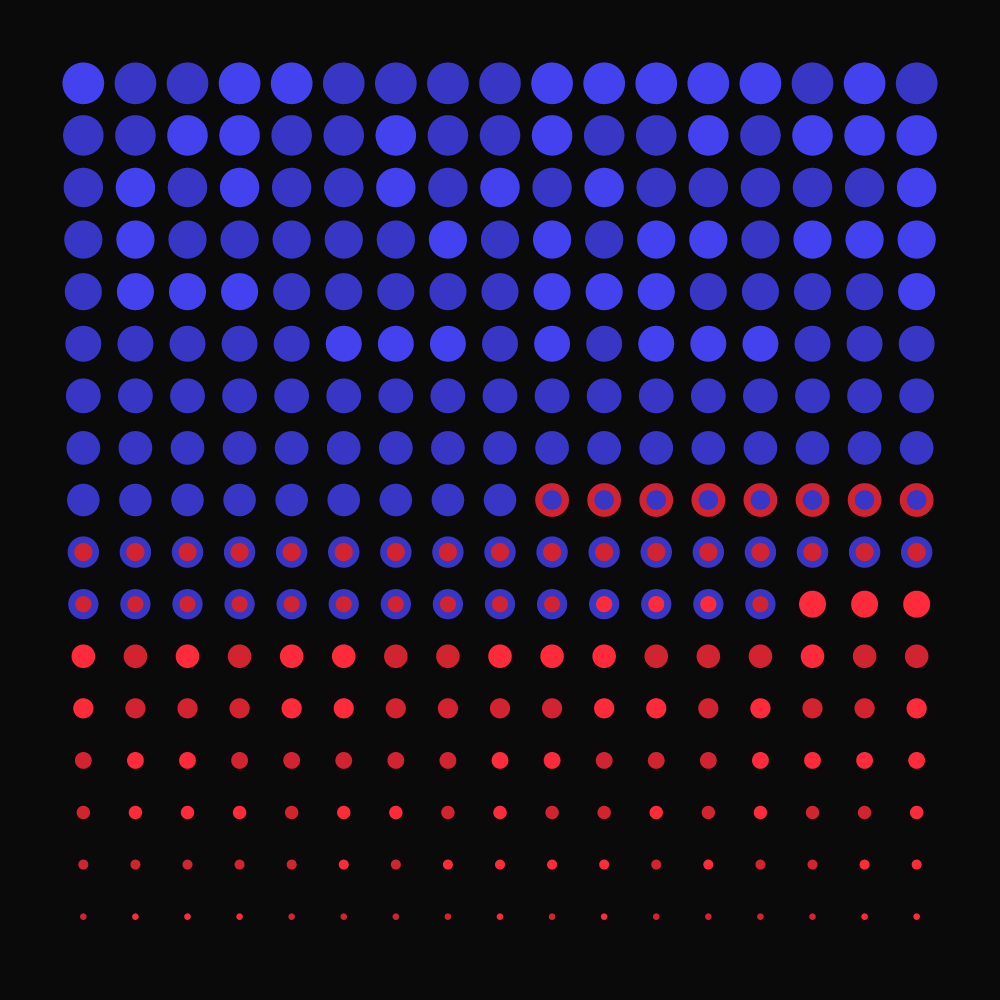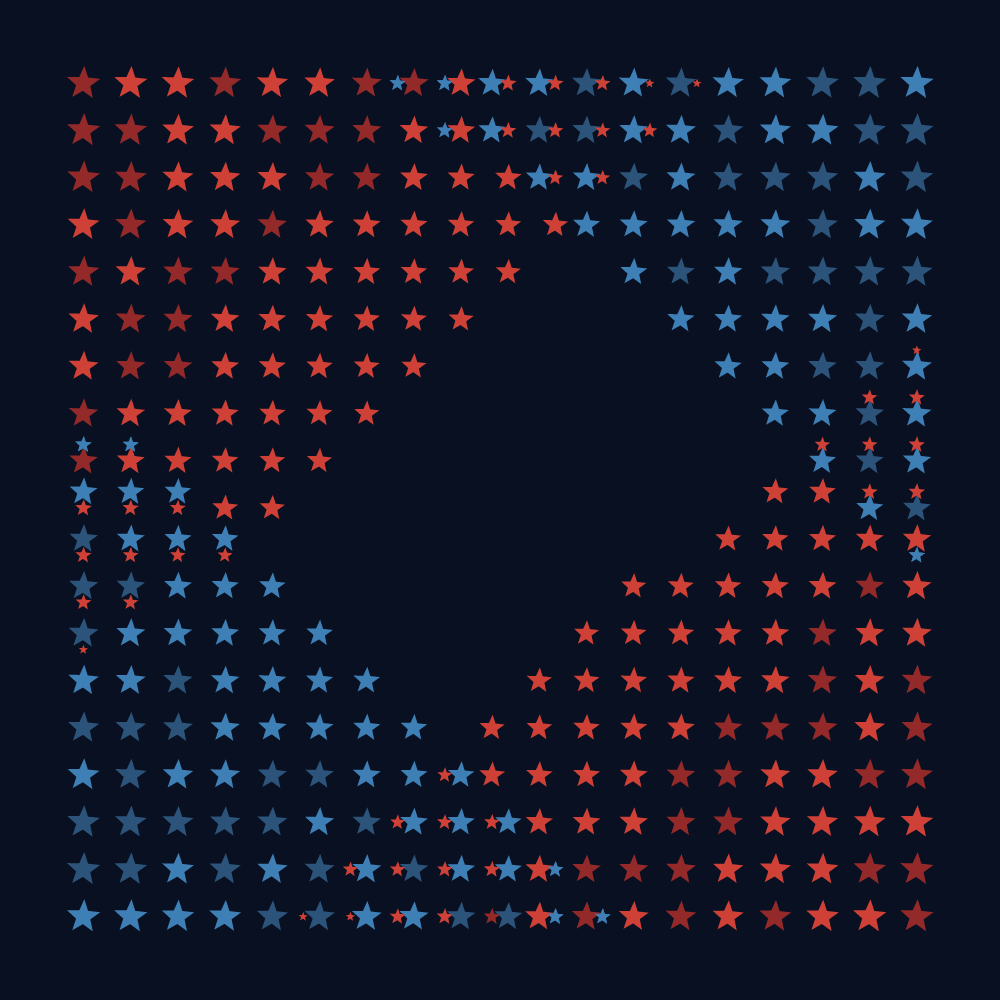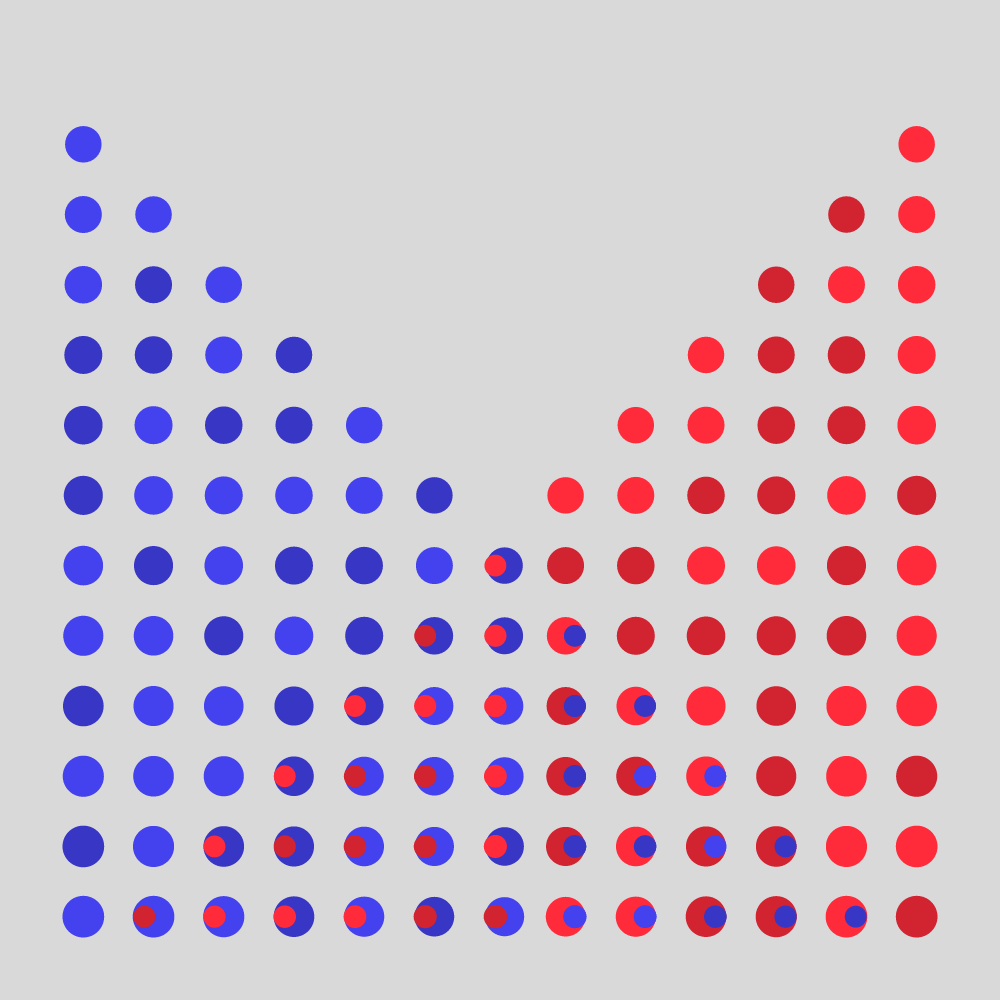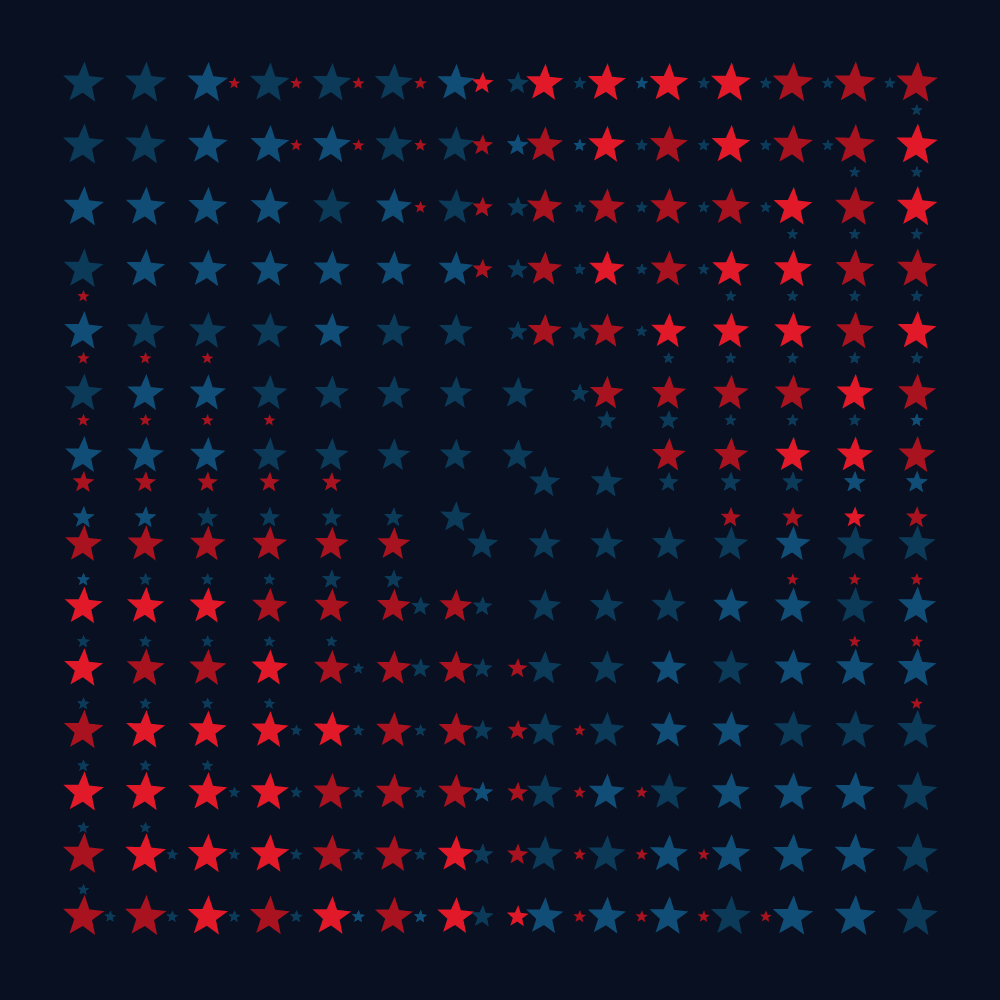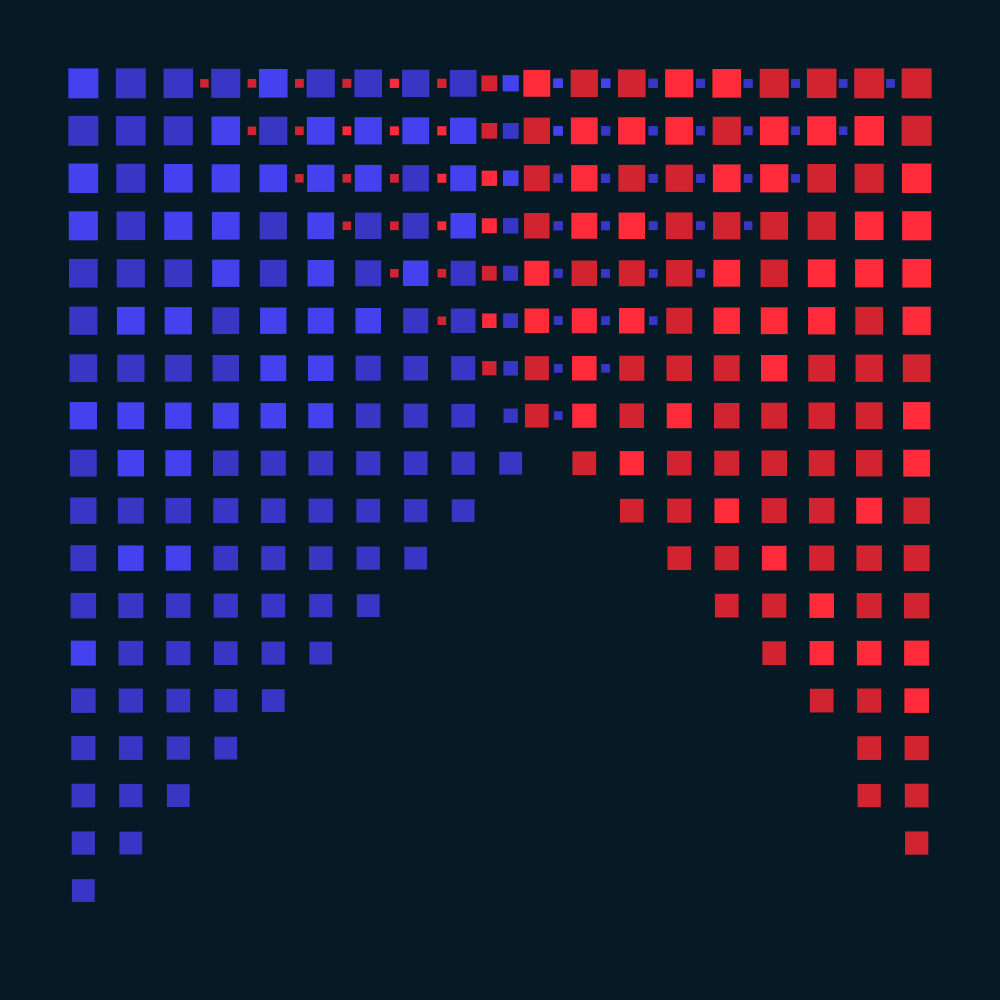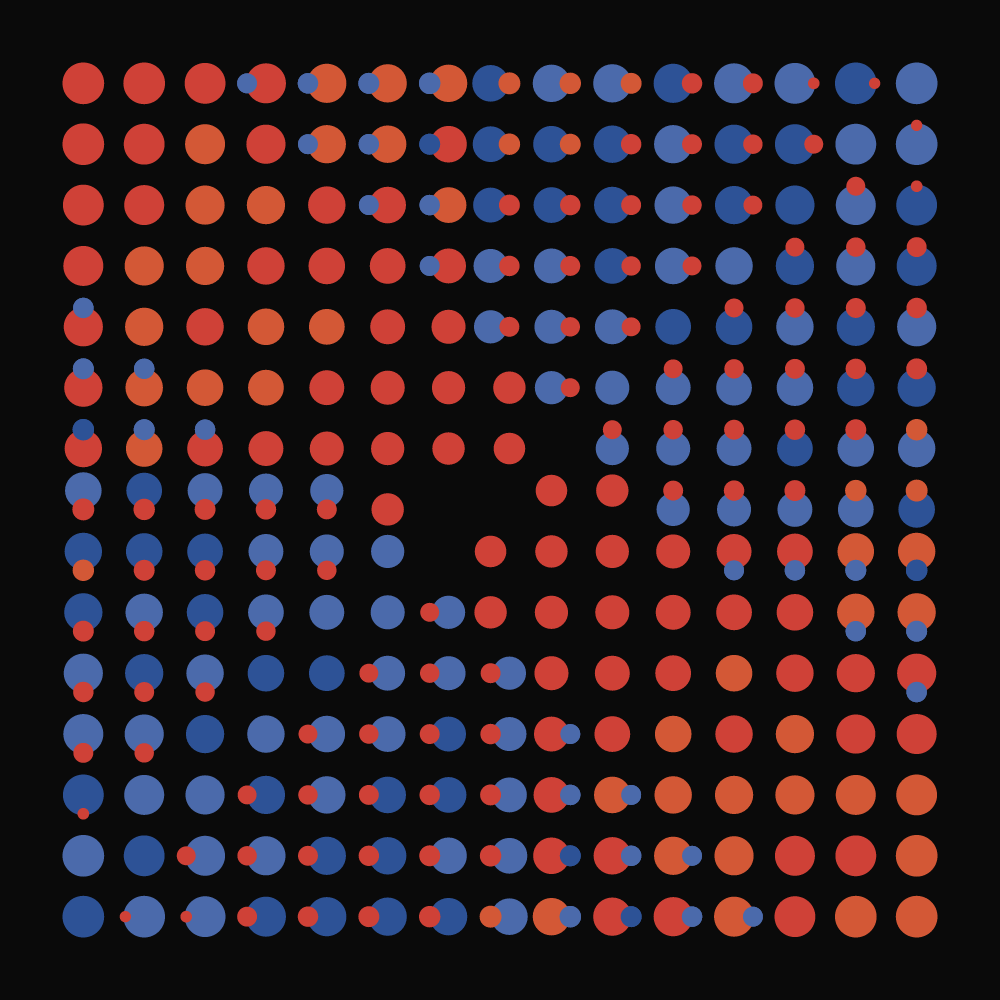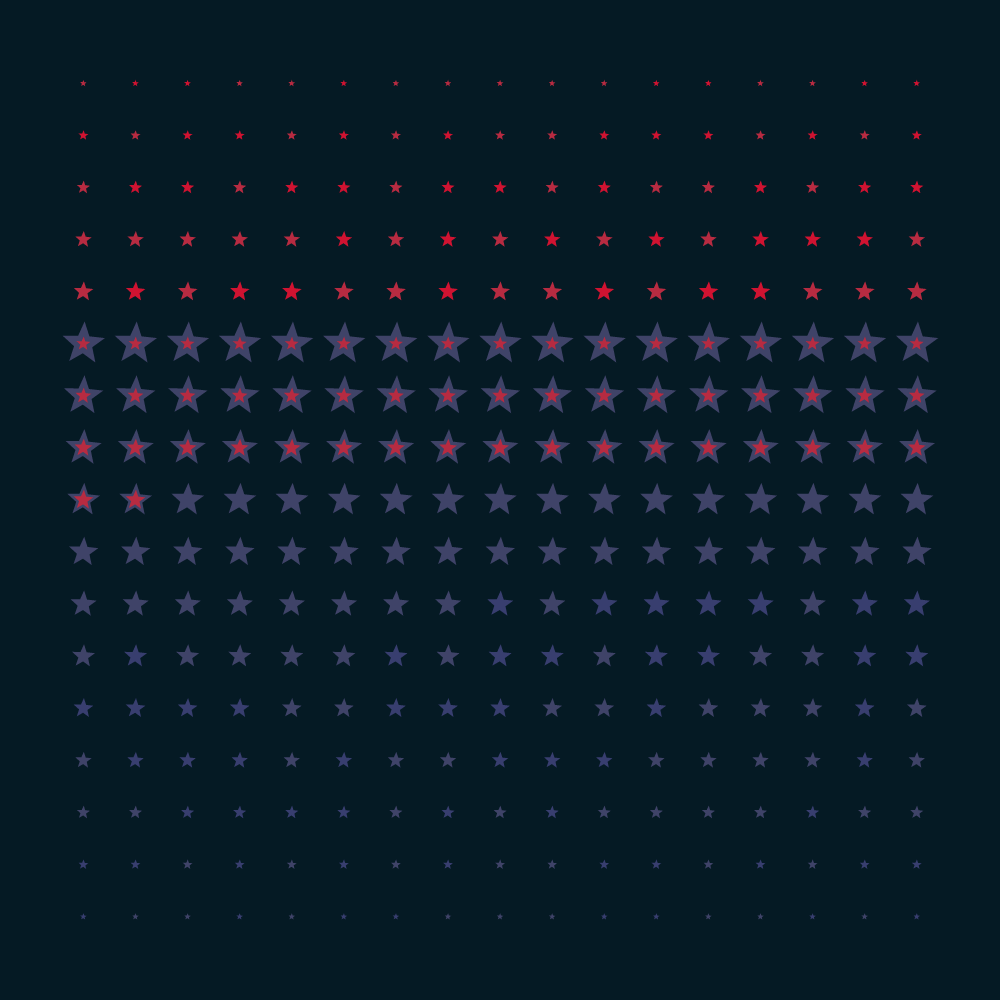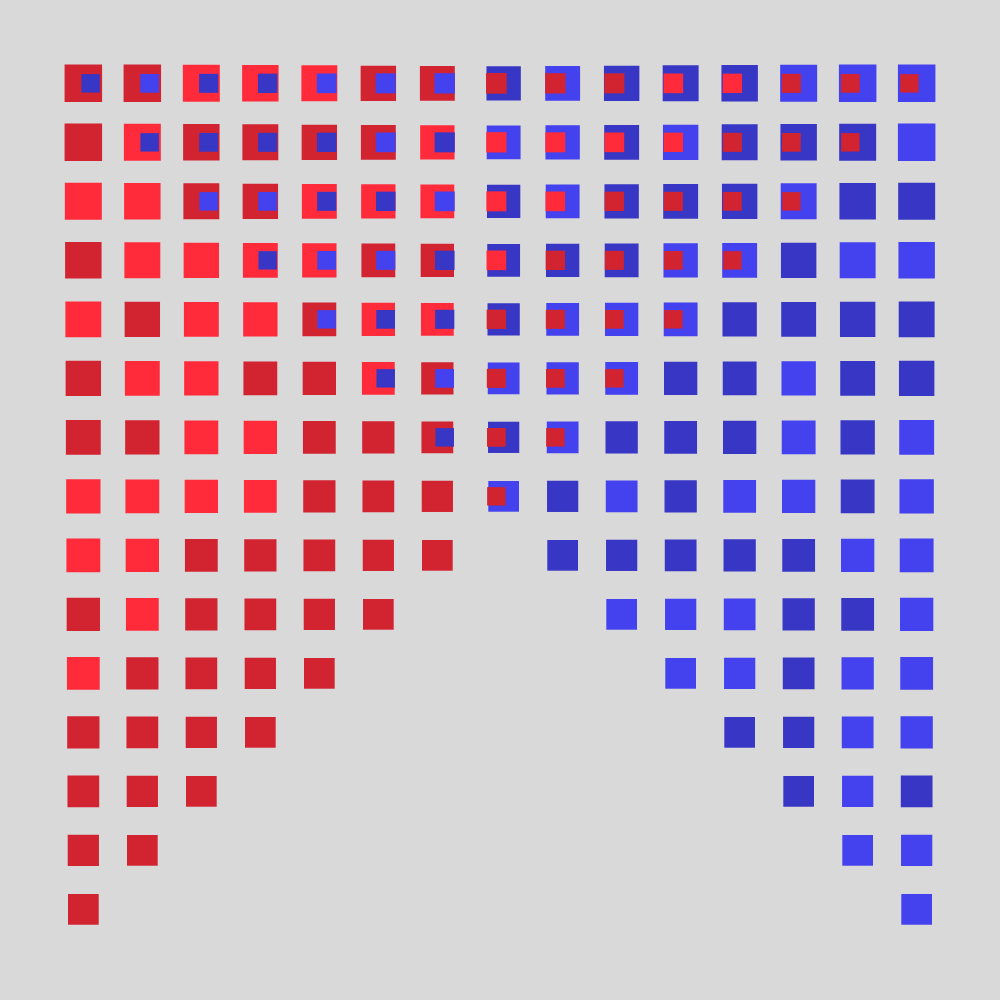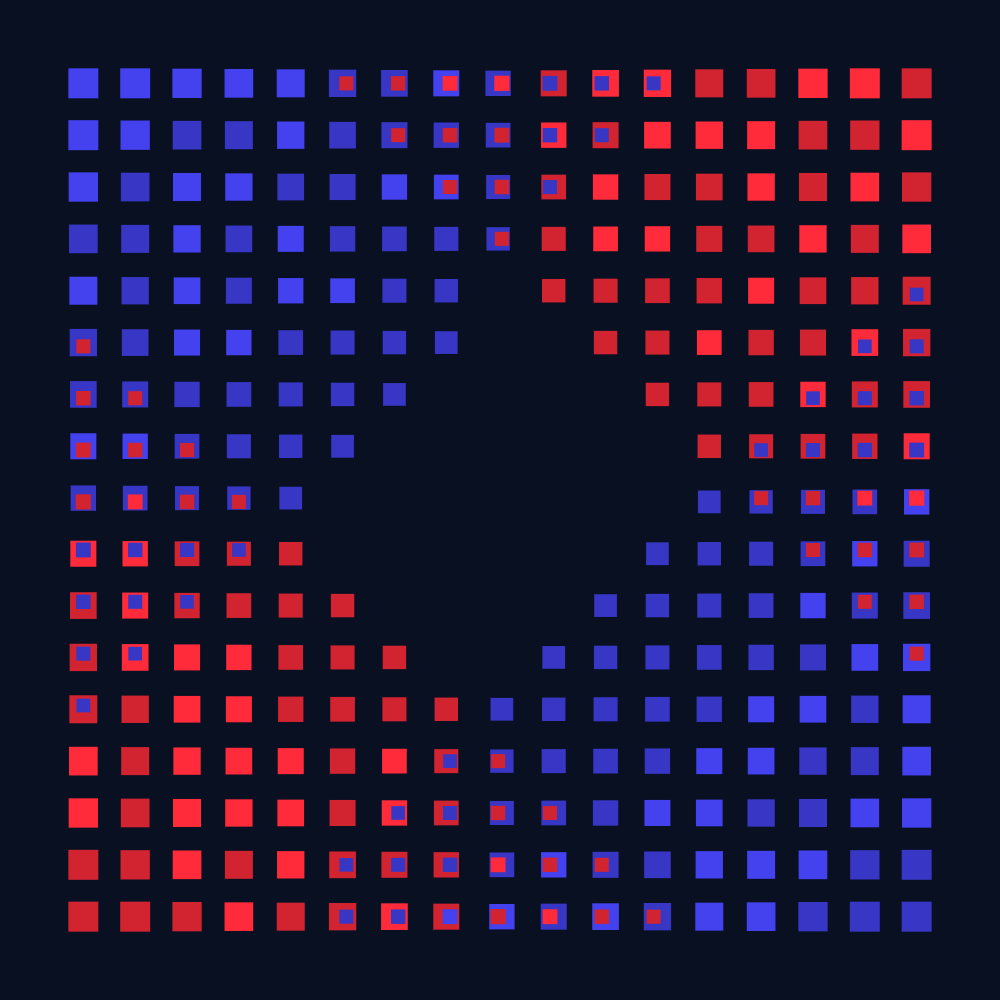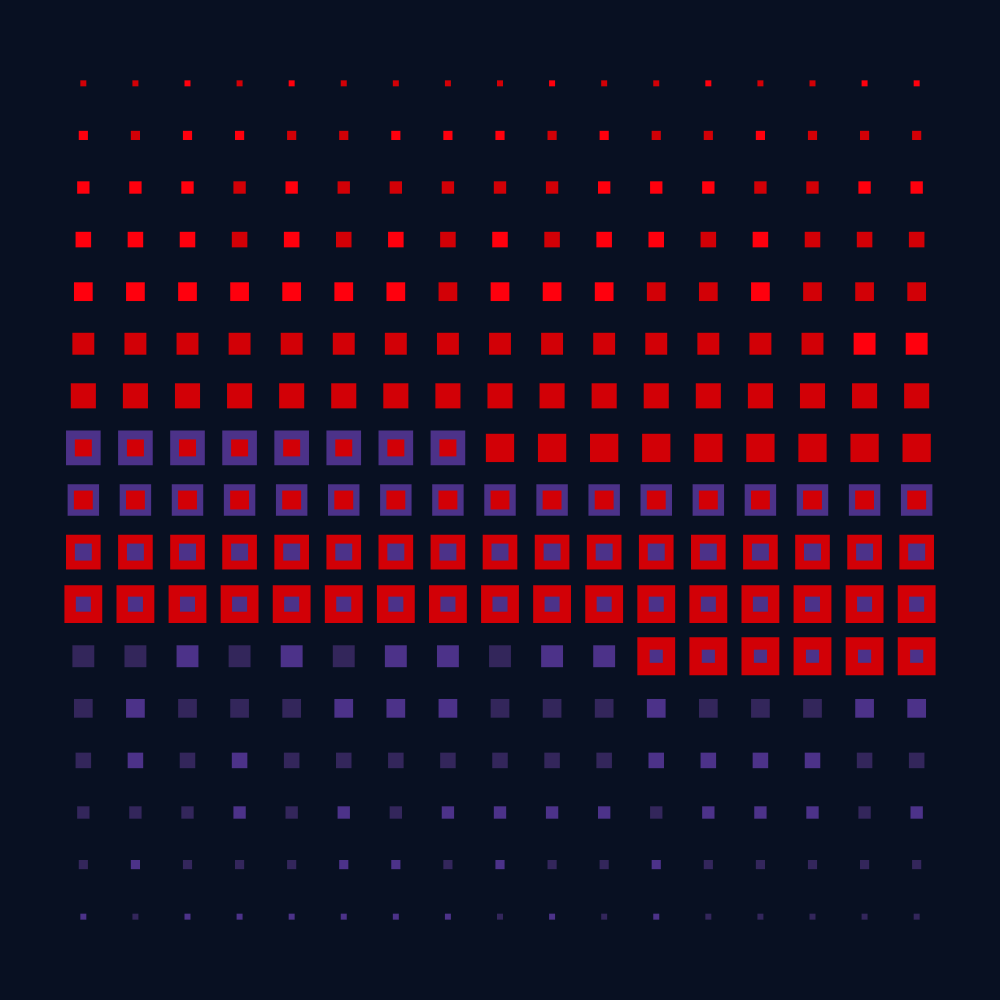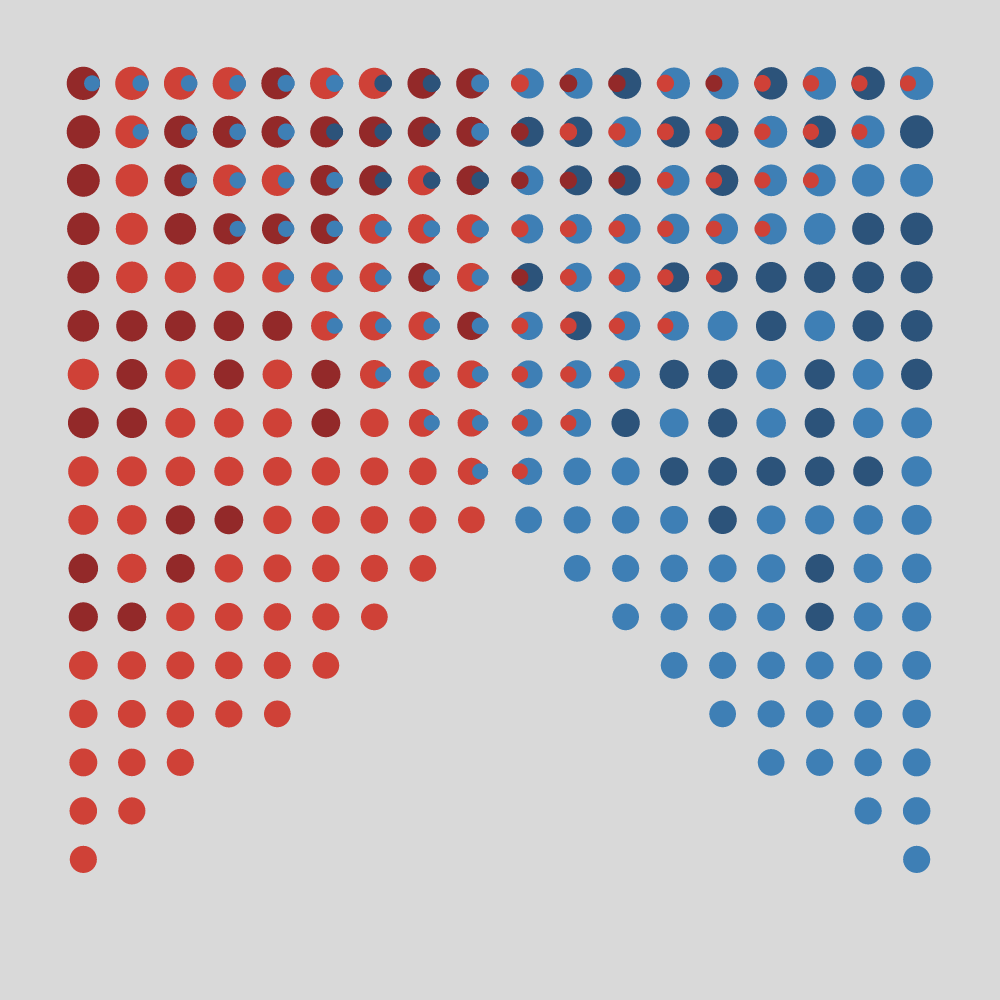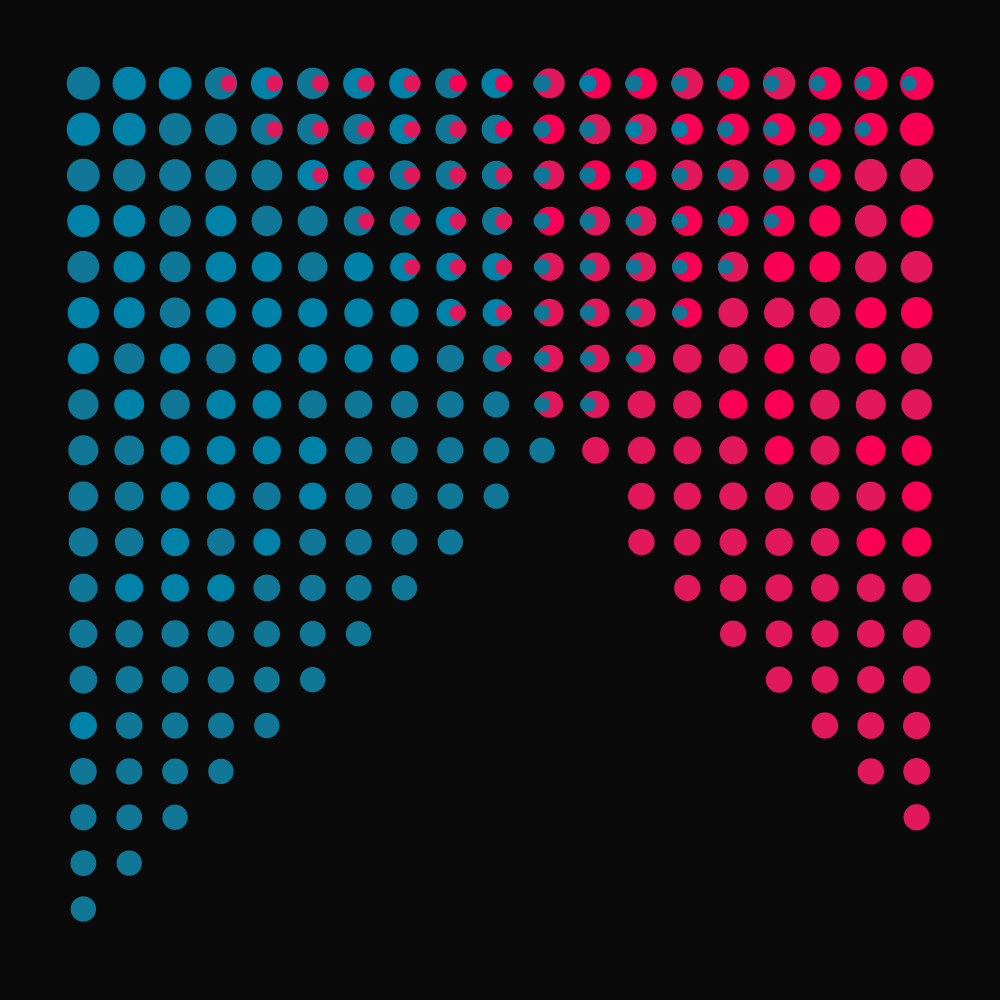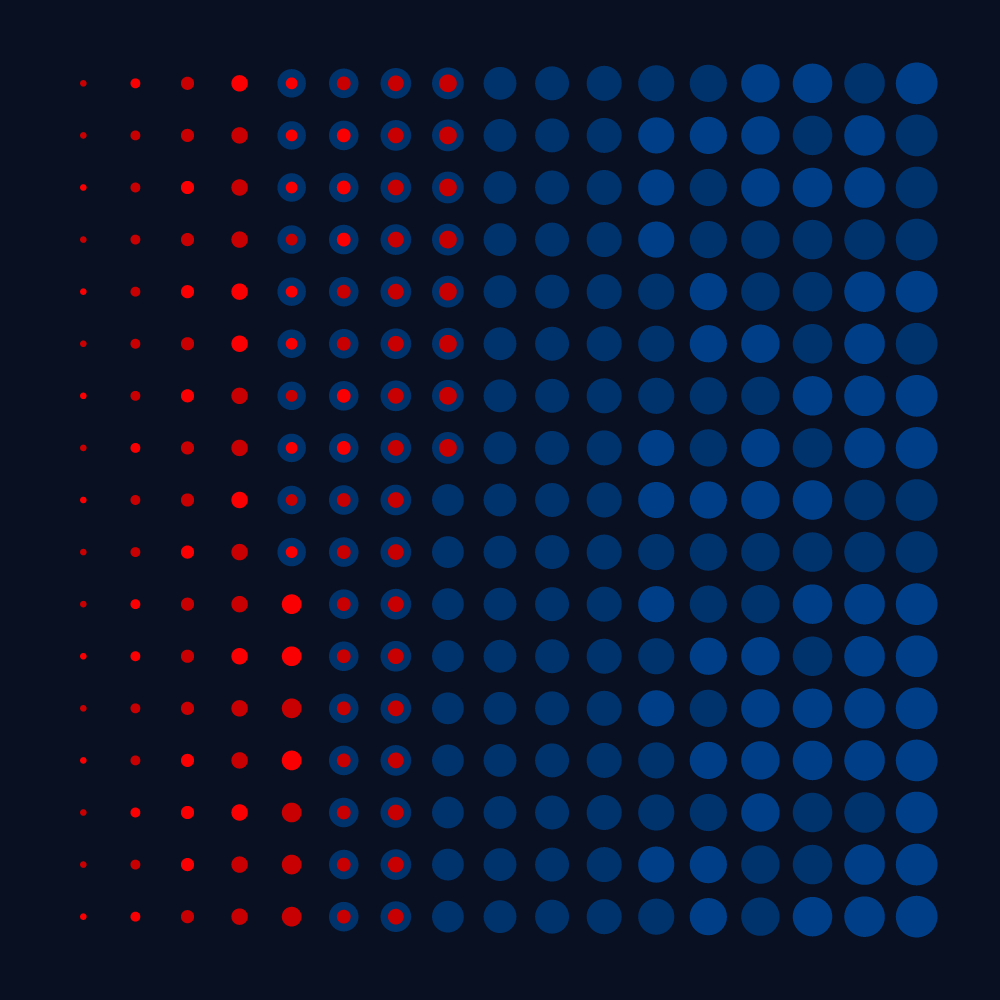REPs
IPFS
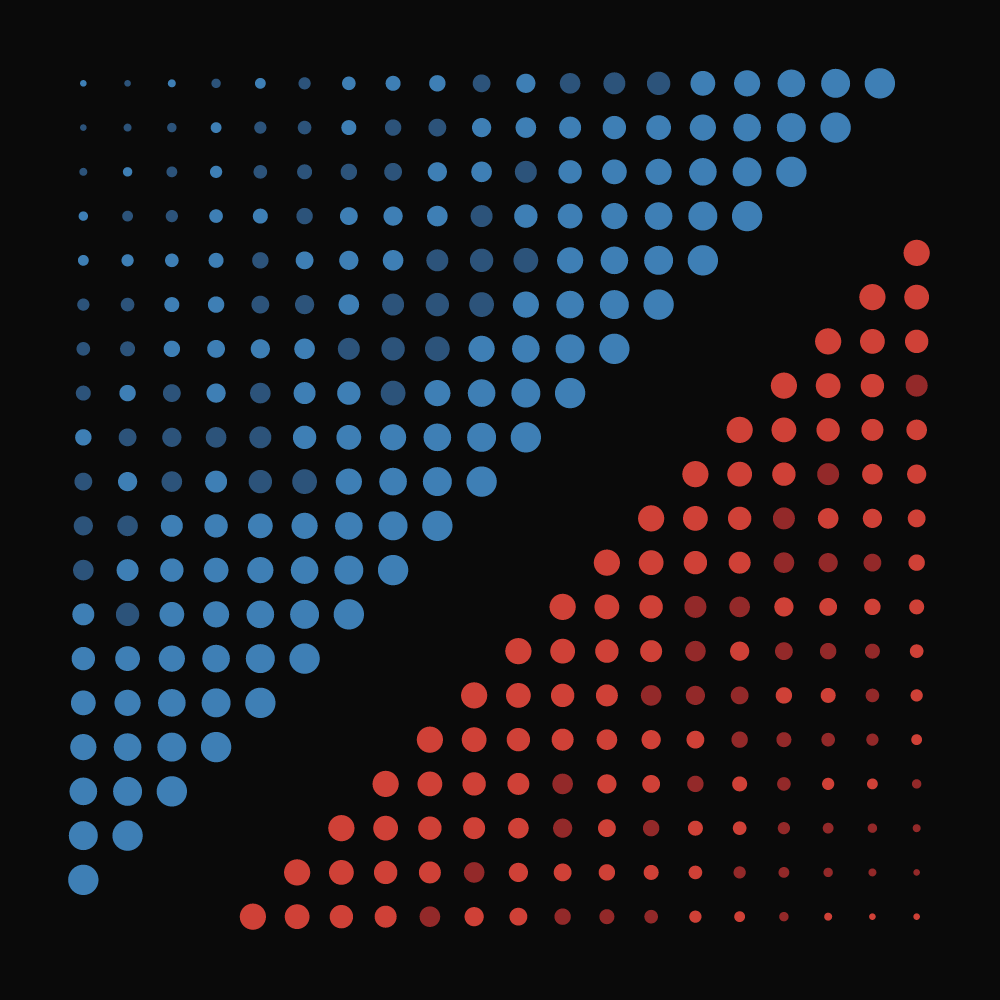
2 December 2022•TEZOS•IPFS
REPs (short for representatives) is a generative art project that visualizes one of the most impactful re-occurring events in global politics: the US Elections. Each artwork represents one of the seven Congressional Elections between 2008 and 2020. The goal of the REPs is to strike a balance between a plethora of different artistic renderings that still convey a data-based result of an election.
The data is integrated in the code to prevent external dependencies and is sourced from the MIT Election Data and Science Lab.
Taking a closer look
The data set shows that each Congressional Election consists of two numbers — the number of seats, which is divided between Democrats and Republicans, as well as the number of Senates, which again is divided between Democrats and Republicans. If we look at an example, one can see that for the Congressional Election in 2010, there were 193 Seats for the Democrats and 242 Seats for Republicans.
Visualizing the results
These data points are used to create a randomly generated artwork in p5.js by applying various parameters. The rendered artwork reflects the result of the Congressional Election according to the given year.
So how was the texture created? In specific, the code starts by randomly selecting an election year, e.g. 2018. The outcome of this election will be displayed in form of data points.
The number of data points in the Congressional Election is the combination of the number of Representatives and Senators. In detail, the visually created output is composed by a certain distribution, which selects a visual appearance and shape randomly based on the set percentages of this distribution.
Additionally, the colors red and blue are randomly selected from previously set color palettes. Furthermore, the technique with which the image will be displayed is also chosen based on parameters using randomness as input.
In summary, the parameters impacting the output are as follows: The year of the election (Year), how the animations are drawn (Draw Type), the shape of the forms used (Shape Type), the color palette (Color Palette), and the animation type determining how the animation is rendered (Animation Type).
The data is integrated in the code to prevent external dependencies and is sourced from the MIT Election Data and Science Lab.
Taking a closer look
The data set shows that each Congressional Election consists of two numbers — the number of seats, which is divided between Democrats and Republicans, as well as the number of Senates, which again is divided between Democrats and Republicans. If we look at an example, one can see that for the Congressional Election in 2010, there were 193 Seats for the Democrats and 242 Seats for Republicans.
Visualizing the results
These data points are used to create a randomly generated artwork in p5.js by applying various parameters. The rendered artwork reflects the result of the Congressional Election according to the given year.
So how was the texture created? In specific, the code starts by randomly selecting an election year, e.g. 2018. The outcome of this election will be displayed in form of data points.
The number of data points in the Congressional Election is the combination of the number of Representatives and Senators. In detail, the visually created output is composed by a certain distribution, which selects a visual appearance and shape randomly based on the set percentages of this distribution.
Additionally, the colors red and blue are randomly selected from previously set color palettes. Furthermore, the technique with which the image will be displayed is also chosen based on parameters using randomness as input.
In summary, the parameters impacting the output are as follows: The year of the election (Year), how the animations are drawn (Draw Type), the shape of the forms used (Shape Type), the color palette (Color Palette), and the animation type determining how the animation is rendered (Animation Type).
Award winning designer loves to create design driven art!
435 EDITIONS
•0 RESERVES
minted
39 / 435
fixed price
3 TEZ
Lorem ipsum project longer longer
0.00001 ETH
Lorem ipsum project longer longer
0.00001 ETH
Lorem ipsum project longer longer
0.00001 ETH
Lorem ipsum project longer longer
0.00001 ETH
Lorem ipsum project longer longer
0.00001 ETH
Lorem ipsum project longer longer
0.00001 ETH
Lorem ipsum project longer longer
0.00001 ETH
Lorem ipsum project longer longer
0.00001 ETH
Lorem ipsum project longer longer
0.00001 ETH
Lorem ipsum project longer longer
0.00001 ETH
Lorem ipsum project longer longer
0.00001 ETH
Lorem ipsum project longer longer
0.00001 ETH
Lorem ipsum project longer longer
0.00001 ETH
Lorem ipsum project longer longer
0.00001 ETH
Lorem ipsum project longer longer
0.00001 ETH
Lorem ipsum project longer longer
0.00001 ETH
Lorem ipsum project longer longer
0.00001 ETH
Lorem ipsum project longer longer
0.00001 ETH
Lorem ipsum project longer longer
0.00001 ETH
Lorem ipsum project longer longer
0.00001 ETH
Lorem ipsum project longer longer
0.00001 ETH
Lorem ipsum project longer longer
0.00001 ETH
Lorem ipsum project longer longer
0.00001 ETH
Lorem ipsum project longer longer
0.00001 ETH
